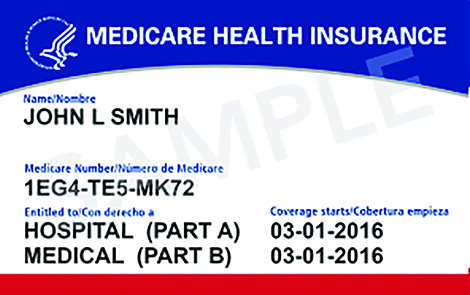The federal government’s new out-of-pocket spending cap for prescription drugs in Medicare Part D promises to be a big money-saver for well over 1 million beneficiaries when it takes effect next year.
The $2,000 cap, part of the Inflation Reduction Act of 2022, will lead to thousands of dollars in savings for Medicare patients who take high-cost drugs for cancer, rheumatoid arthritis, and other serious conditions. It follows the elimination this year of a longstanding requirement that Part D enrollees pay 5 percent of their drug costs out-of-pocket after their drug expenditures reach a certain threshold.
If the cap been in place in 2021, for example, 1.5 million Medicare beneficiaries would have benefitted because their out-of-pocket costs for prescription drugs exceeded $2,000, according to Kaiser Family Foundation (KFF) after its review of Part D drug claims. About 200,000 beneficiaries spent $5,000 or more for their prescriptions that year, while another 300,000 spent between $3,000 and $5,000. The rest spent between $2,000 and $3,000.
In six states — New York, Pennsylvania, Ohio, Illinois, North Carolina, and New Jersey — between 50,000 and 82,000 beneficiaries spent more than $2,000 out-of-pocket for prescription drugs in 2021. The numbers were higher in California, Florida, and Texas, where more than 100,000 Part D enrollees exceeded the threshold that year. In Washington, the number was 30,000.
In 2025, Medicare beneficiaries will pay no more than $2,000 out of pocket for drugs covered under Part D, Medicare’s outpatient drug benefit. This is due to a provision in the Inflation Reduction Act (IRA), which included several changes to the Part D program designed to lower patient out-of-pocket costs and reduce what Medicare spends on prescription drugs. Surveys have shown a large majority of Americans support the Inflation Reduction Act. But he pharmaceutical industry isn’t as enamored with it. In February, representatives of big drug companies—Bristol Myers Squibb, Johnson and Johnson, and Merck–testified at a committee hearing of Congress on the subject of their companies’ opposition to the Medicare controls of drug prices, which currently are as much as four times higher in the U.S. than in other countries. Lawsuits challenging the policy have been part of the industry’s claims that price controls would harm its market-based system and potentially reduce its research and development of new drugs.
One in five U.S. adults report that they sometimes don’t buy a prescription because of the cost, while one in 10 say they’ve cut or skipped doses of medicine in the past year, according to a KFF poll. Higher drug costs also disproportionately impact low-income families, rural Americans, and people with disabilities.
Despite making billions of dollars in profits “on the backs of consumers,” the pharmaceutical companies want “to rip away savings from seniors by banning Medicare from negotiating for lower prices,” said Leslie Dach, chief executive officer of Protect Our Care.
Sources: KFF (Kaiser Family Foundation), a non-profit research organization, and Protect Our Care, a non-profit advocate of lower-cost healthcare.
